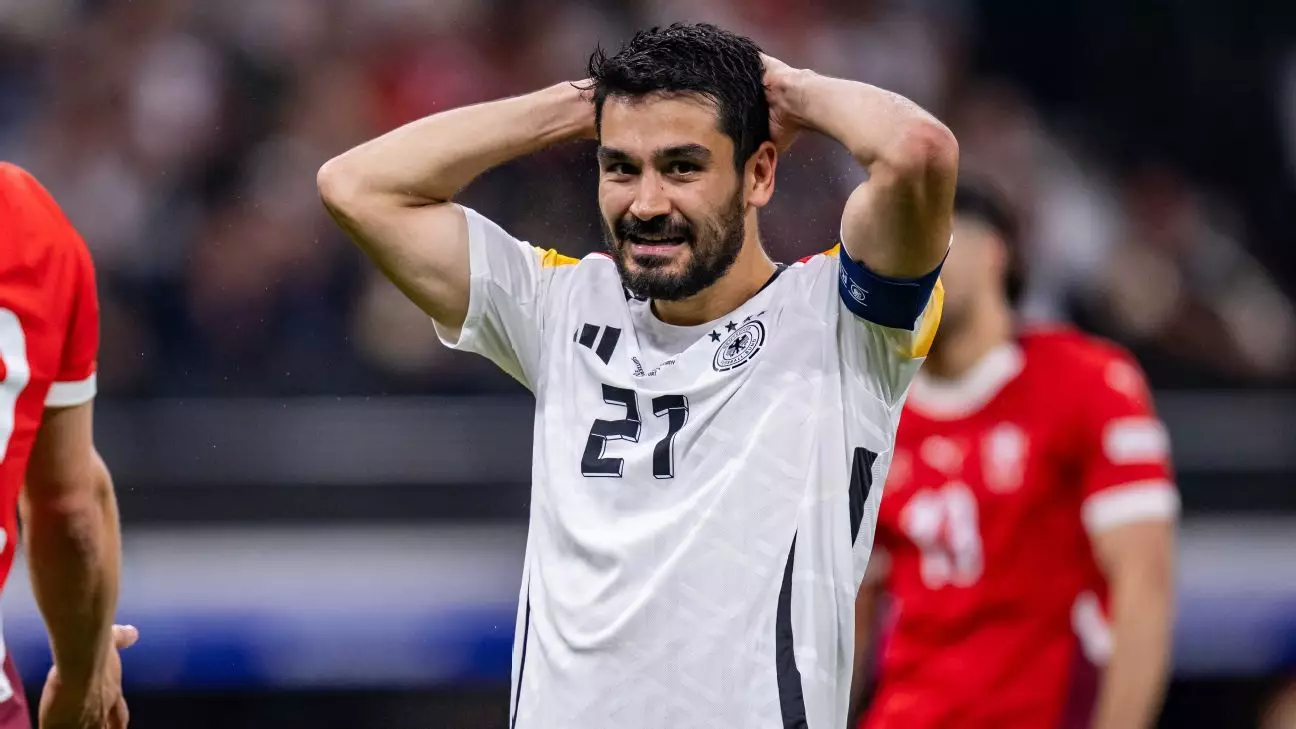Germany’s Euro 2024 campaign took an unexpected turn when Niclas Füllkrug became the hero by scoring a stoppage-time equalizer against Switzerland. The draw salvaged a point for the hosts and secured a spot in the softer side of the knockout-round bracket. While the late equalizer was a moment of relief for Germany, it raised questions about the team’s reliance on Plan B rather than sticking to Plan A.
Julian Nagelsmann’s decision to turn to an emergency plan highlighted the team’s vulnerabilities. Despite salvaging a draw with a last-minute header, the fact that substitutes were relied upon to rescue the game raised concerns about the team’s overall strategy and preparedness. Nagelsmann downplayed the significance of the emergency plan, but the reality remains that Germany struggled against Switzerland’s tactics.
While the late equalizer ensured that Germany maintained momentum in the tournament, it also highlighted the team’s shortcomings. Füllkrug’s goal may have saved Germany from a defeat, but it also exposed weaknesses in the team’s lineup. Nagelsmann will need to address these issues and shore up the defense and midfield if Germany hopes to progress further in the competition.
Germany’s defensive frailties were on full display against Switzerland, with the center-back pairing of Jonathan Tah and Antonio Rüdiger struggling to contain the opposition’s forwards. The inability to deal with pace, movement, and physicality was evident throughout the game, ultimately leading to Switzerland’s goal. Tah’s booking further compounded the defensive issues and raised concerns about the team’s discipline.
In midfield, Germany’s key players like Toni Kroos and Ilkay Gündogan were outmaneuvered by Switzerland’s midfield duo of Granit Xhaka and Remo Freuler. The lack of control in midfield hindered Germany’s ability to create chances and dictate play. The midfield battle was lost, exposing the team’s reliance on individual brilliance rather than cohesive teamwork.
The underwhelming performances of Germany’s key players, including Kai Havertz, highlighted the team’s struggles against Switzerland. Despite their collective no-show, Germany managed to salvage a point, emphasizing the importance of resilience and determination. However, the lack of creative spark from the big players raises concerns about the team’s ability to break down stubborn defenses in crucial moments.
As Germany navigates through the Euro 2024 tournament, Nagelsmann faces a challenging task of addressing tactical issues and boosting team morale. The team’s reliance on late heroics and individual brilliance may not be sustainable in the long run. Switzerland’s resilience exposed Germany’s vulnerabilities, forcing Nagelsmann to reconsider his approach and potentially implement changes sooner than expected.
Germany’s Euro 2024 campaign has been a mix of highs and lows. While the late equalizer against Switzerland provided a moment of relief, it also highlighted the team’s shortcomings and tactical vulnerabilities. Nagelsmann’s ability to address these issues and rally his team will be crucial in determining Germany’s success in the competition. As the tournament progresses, Germany will need to find a balance between relying on individual brilliance and cohesive teamwork to overcome the challenges ahead.

